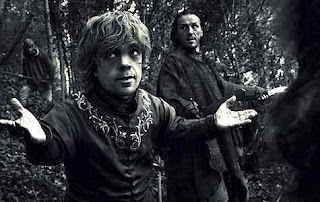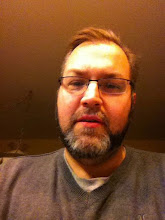This week, after much consternation, I decided to release my first "real" novel, WINTER'S DISCORD, on my own. It wasn't an easy decision and one I'd been flip-flopping about for months but a wide assortment of reasons prevented me from pulling the trigger. This past weekend I made it happen and released it as an ebook only through Kindle Direct Publishing. So what changed? Here's a short list of reasons.
- It's been 17 years since I finished WINTER and queried it for the first time. I've been through two agents. One signed me then quit agenting, leaving me high and dry. The second screwed me over multiple times by not submitting my work even though he said that he was. He didn't even bother returning my emails telling him I was letting him go. I had a few close calls. One publisher liked the book but felt it was too much like something else they had (that wound up being wildly popular) and another that felt it was too complex for the YA space but too simple for the adult epic fantasy audience. I decided that it was time to do something with it. I felt that it's too good a book to be a trunk novel and that I had nothing to lose by releasing it to the world. I talk about my writing all the time and felt that it was time to shit or get off the pot.
- I wanted to see what people would actually think of what I wrote, for better or for worse. I need to know if I'm as good as I think I am. And what a better way to do it then by releasing it by myself. I'm only doing ebook for an assortment of reasons that I'll discuss later.
- The third reason is the one that pushed me the most. About a month ago, a good friend unexpectedly passed away and it shook me to my core. He was only a few years older and was about to retire. It made me really consider some things and I decided that I didn't want to be one of those people that just talked about doing something, so I decided that it was time to do the thing. And I did.
- Does this mean I've given up on being traditionally published? No. I'm still actively querying and seeking representation for my writing, but I've decided to slow down a bit and reevaluate what I want to send out next. I shifted to writing for a younger audience in the last year and most "new" writing I'm doing has been in that space. More on that later.
- Why just an ebook? Mostly for logistical reasons. There are a lot more steps in preparing a physical book that I just didn't want to take right now or pay for, to be honest. I may do so in the future, depending on how well the books do.
- Is there a sequel? Yes. If all goes according to plan, there will be three sequels as part of the series. Presently, I'm working on revising and editing the second book, SPRING'S TEMPEST, and hope to release that some time in the summer (It looks like I'm going to be running at least a season behind on each book!). The other two books, tentatively titled SUMMER'S STRIFE and AUTUMN'S GLORY, need to be planned and written, so that'll take time, I just don't know how much time it is going to take for me to finish the books. I think they are going to be big books so it'll take some time to finish them, even with a good plan!
- Where's the map? Alright, if you know me, you know I LOVE me a good map and think that all fantasy books should have a map. I wanted a map but I don't exactly have the funds to hire a cartographer to turn the chicken scratched map that I've drawn into something worth putting into the book. Again something I will correct. (I could've asked my daughter, who did the brilliant cover, but I felt like I asked her to do enough already, plus I need her for three more covers!)
- What's next? Well, I'm still working that out. I want to focus on finishing this series but that's easier said than done. I have to fix SPRING, which is going to be a lot of heavy lifting in some spots, then plan and write books three and four. That being said, I have other plans for the coming months. I have a middle grade project that I really want to finish and send out into the world. I'm studying MG books and trying to get the voice down. I think I'm close. I just have to figure out the third act. I think middle grade is my best shot at getting representation. I also want to give another swing at my YA fantasy THE LOST SCIONS...well at least take a swing at the third act. Third acts have been vexing me lately. I really believe in that story. Everything else has kind of been put away for a while, I don't want to say that they are trunked but they are carefully put under glass for now.














